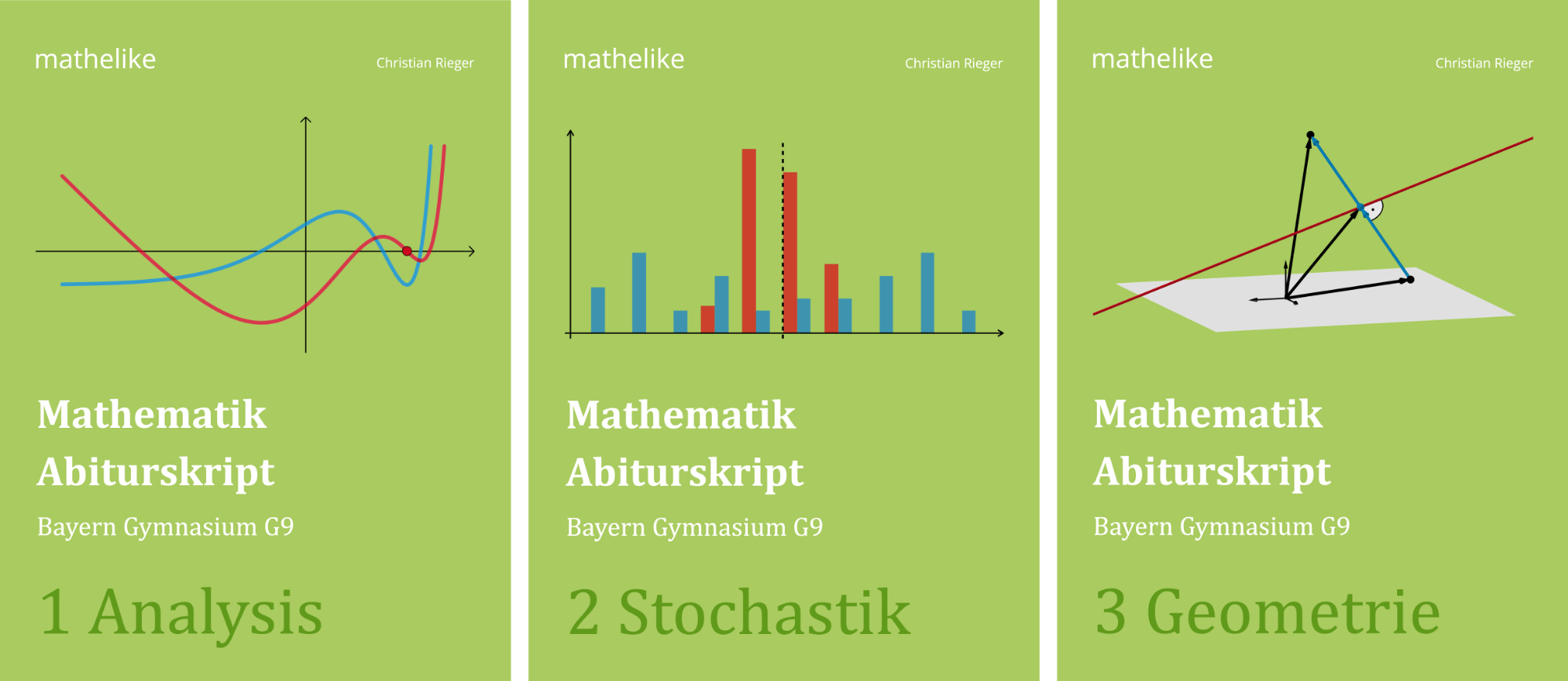Eine Funktion \(f\) ist durch \(f(x) = 2 \cdot e^{\frac{1}{2}x} - 1\) mit \(x \in \mathbb R\) gegeben.
Ermitteln Sie die Nullstelle der Funktion \(f\).
(2 BE)
Lösung zu Teilaufgabe 2a
\[f(x) = 2 \cdot e^{\frac{1}{2}x} - 1; \; D_{f} = \mathbb R\]
Die Ermittlung der Nullstelle der Funktion \(f\) führt auf folgende zu lösende Exponentialgleichung:
\[\begin{align*} f(x) &= 0 \\[0.8em] 2 \cdot e^{\frac{1}{2}x} - 1 &= 0 \end{align*}\]
Die Exponentialgleichung lässt sich nach elementarer Umformung durch Logarithmieren und mithilfe von Rechenregeln für Logarithmen lösen.
Anmerkung:
Ein Logarithmieren ohne vorherige Umformung ist nicht zielführend, da der Logarithmus von Null nicht definiert ist. Abgesehen davon löst der Logarithmus der Differenz \(2 \cdot e^{\frac{1}{2}x} - 1\) den Exponentialterm \(e^{\frac{1}{2}x}\) nicht auf.
\[\begin{align*} f(x) &= 0 \\[0.8em] 2 \cdot e^{\frac{1}{2}x} - 1 &= 0 & &| +1 \\[0.8em] 2 \cdot e^{\frac{1}{2}x} &= 1 & &| : 2 \\[0.8em] e^{\frac{1}{2}x} &= \frac{1}{2} & &| \; \ln \; \text{(Logarithmieren)} \\[0.8em] \ln\left( e^{\frac{1}{2}x} \right) &= \ln\left( \frac{1}{2} \right) & &| \; \ln\left( e^{x} \right) = x; \; \left(\text{allg.:}\; \log_{a}\left( a^{x} \right) = x \right) \\[0.8em] \frac{1}{2}x &= \ln\left( \frac{1}{2} \right) & &| \cdot 2 \\[0.8em] x &= 2 \cdot \ln\left( \frac{1}{2}\right) & &| \; \frac{1}{a^{n}} = a^{-n} \\[0.8em] x &= 2 \cdot \ln\left( 2^{-1}\right) & &| \; \log_{a}\left( b^{n} \right) = n \cdot \log_{a}b \\[0.8em] x &= 2 \cdot (-1) \cdot \ln{2} \\[0.8em] x &= -2\ln2 \end{align*}\]
Es ist ebenfalls möglich, die Gleichung \(2 \cdot e^{\frac{1}{2}x} = 1\) zu logarithmieren:
\[\begin{align*} f(x) &= 0 \\[0.8em] 2 \cdot e^{\frac{1}{2}x} - 1 &= 0 & &| +1 \\[0.8em] 2 \cdot e^{\frac{1}{2}x} &= 1 & &| \; \ln \; \text{(Logarithmieren)} \\[0.8em] \ln\left( 2 \cdot e^{\frac{1}{2}x} \right) &= \ln{1} & &| \; \log_{a}(b \cdot c) = \log_{a}{b} + \log_{a}{c}; \; \log_{a}{1} = 0 \\[0.8em] \ln{2} + \ln\left( e^{\frac{1}{2}x} \right) &= 0 & &| \; \ln\left( e^{x} \right) = x; \; \left(\text{allg.:} \; \log_{a}\left( a^{x} \right) = x \right) \\[0.8em] \ln{2} + \frac{1}{2}x &= 0 & &| - \ln{2} \\[0.8em] \frac{1}{2}x &= -\ln{2} & &| \cdot 2 \\[0.8em] x &= -2\ln{2} \end{align*}\]
Die Stelle \(x = -2\ln2\) ist (einzige) Nullstelle der Funktion \(f\).


